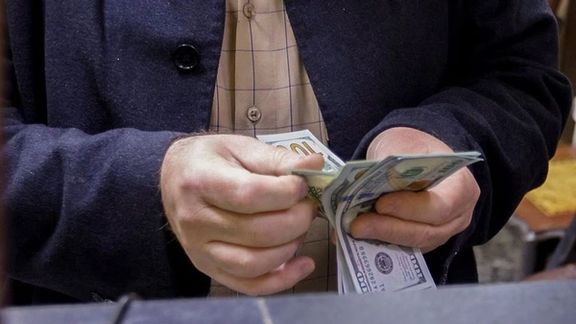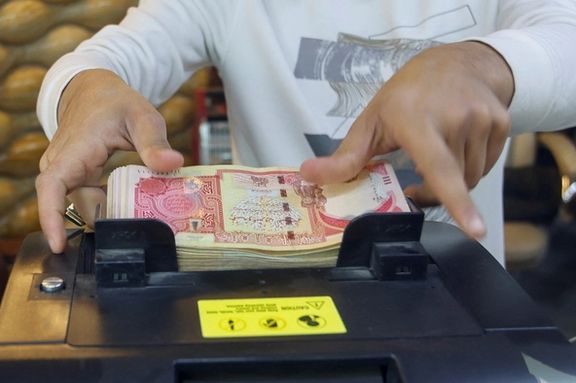US Bars 14 Iraqi Banks From Dollar Trade With Iran

Amid reports that the Biden administration has allowed Iraq to pay Iran for electricity via non-Iraqi banks, the US has imposed a ban on 14 Iraqi banks from conducting dollar transactions.

Amid reports that the Biden administration has allowed Iraq to pay Iran for electricity via non-Iraqi banks, the US has imposed a ban on 14 Iraqi banks from conducting dollar transactions.
According to a report by the Wall Street Journal on Wednesday, the ban, imposed by the Treasury Department and the Federal Reserve Bank of New York, is part of an effort to crackdown on the flow of US currency to Iran and other sanctioned Middle East countries.
The targeted banks are mostly small institutions, even by Iraqi standards. Some of these banks have ties to influential Iraqis, are known for financial connections with Iran, or have heavy involvement in dollar transactions. Among those on the US list are Al Mustashar Islamic Bank, Erbil Bank, World Islamic Bank, and Zain Iraq Islamic Bank.
The newspaper added that US officials have taken action against these Iraqi banks after uncovering information that they engaged in money laundering and fraudulent transactions, some of which may have involved sanctioned individuals, raising concerns about benefiting Iran.
"We have strong reason to suspect that at least some of these laundered funds could end up going to benefit either designated individuals or individuals who could be designated," a senior US official was quoted as saying by the Journal."And of course the primary sanctions risk in Iraq relates to Iran."
According to the officials, the main goal of the dollar restrictions was to choke off money-laundering in Iraq.

Iran International revealed in May that an aide to former IRGC’s Quds force commander Qassem Soleimani is a key figure in money laundering for Tehran. Earlier in the year, Iran International also unraveled some details about the inner workings of a Quds force unit tasked with smuggling money from Iraq to Iran, proving that the Islamic Republic’s embassy in Iraq is also involved in the money laundering operations aimed at funneling revenues from oil and gas exports back to Iran.
This financial network is bypassing the US sanctions at the cost of the Iraqi economy. An informed source in Baghdad told Iran International late in December that Washington has received reports that Iraq is still conducting trade with Iran using US dollars despite sanctions.
The new move by Washington, which probably provokes new tensions between Baghdad and Washington and could lead to more economic turmoil for ordinary Iraqis, was announced only hours after Reuters reported that Secretary of State Antony Blinken has signed a 120-day national security waiver allowing Iraq -- heavily dependent on Iranian electricity -- to deposit payments into non-Iraqi banks in third countries instead of into restricted accounts in Iraq.
Moreover, the Treasury recently approved a payment of 2.5 billion euros, equivalent to about $2.8 billion, toward unpaid debts by the Iraqi government for Iranian electricity and gas imports, which had been frozen by sanctions.
Despite rumors of the Biden administration's intentions to lower tensions with Iran, these new restrictions signal a hardening of sanctions enforcement against Iran. Earlier this week, the Pentagon also dispatched a warship and jet fighters to the region, saying it was in response to Iranian threats against commercial shipping in the Persian Gulf.
The United States has insisted that oil-rich Iraq, the OPEC group's second-largest producer, moves towards self-sufficiency, and has put pressure on Baghdad to stem the flow of dollars into neighboring Iran.
The dinar went into a tailspin against the dollar after the New York Federal Reserve imposed tighter controls on international dollar transactions by commercial Iraqi banks in November to halt the illegal siphoning of dollars to Iran.
Under the curbs that took effect in January, Iraqi banks must use an online platform to reveal their transaction details. But most private banks have not registered on the platform and resorted to informal black markets in Baghdad to buy dollars.